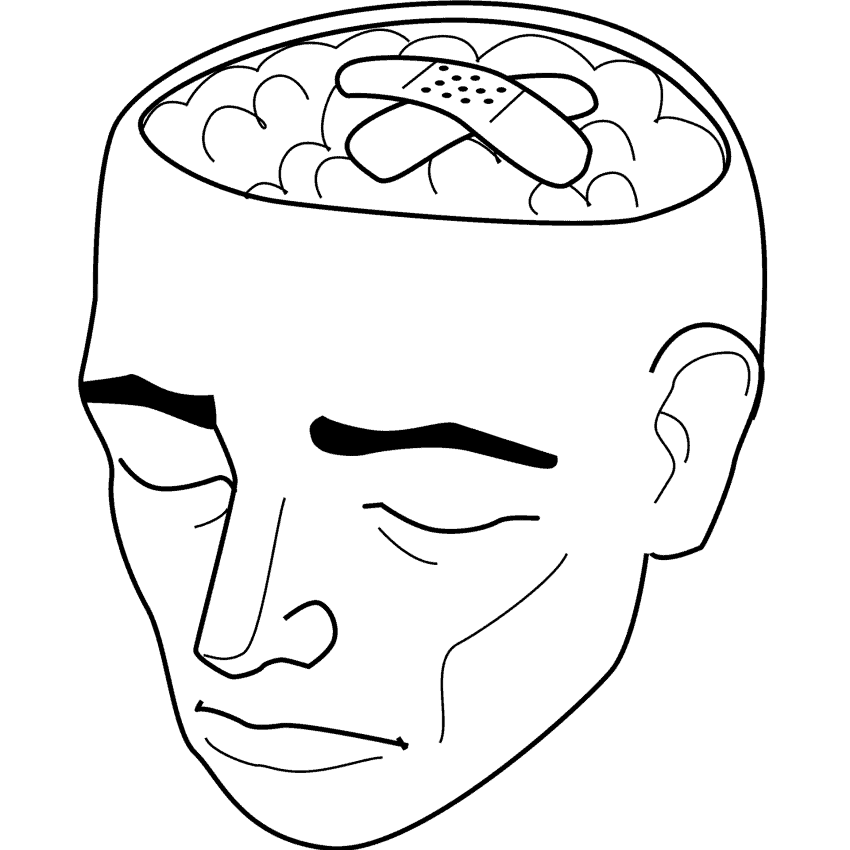
Currently, there are two pressing issues prevalent in society: overlooking our mental health and the destruction of nature. I believe they are intrinsically linked.
Before tying these two concepts together, we must first understand the issues surrounding mental health today and why we’re failing to aid those suffering. This lack of aid is especially important to consider as finals are approaching and the mental health of students is at risk.
Our world is constantly changing and this change puts pressure on us, both physically and mentally. We often think about changes within our day to day life, like a new job or a heavier course load from semester to semester, but what about the environmental changes that we are facing?
People are beginning to experience something that has been referred to as
“eco-anxiety.” As we become more affected by the burgeoning climate crisis and, as the threat to our environment increases, so will the detrimental effects of our mental health.
But with increasing mental health concerns, why are people not receiving treatment? In his article Mental Health Literacy, researcher Anthony Jorm describes two main reasons for this: people don’t have sufficient knowledge to identify the issues and that these issues as they often present themselves during adolescence when attitudes towards mental health are less positive.
A study by the World Health Organization found that adolescents fail to seek professional help for many reasons. Jorm explains that while there are several factors involved, one of the most important factors is lacking the ability to recognize when one needs help.
Why won’t those individuals who haven’t left their beds in weeks seek help? Some people, young or old, do not actually believe that professionals are able to rehabilitate them. One can draw a parallel to people’s inability to believe warnings from environmental scientists. People often want to discredit professional opinion due to a lack of understanding.
You could easily say that the education professionals have is sufficient, but imagine what it’s like to be in the head of someone struggling with their mental health. They’re going to have a difficult time telling even their closest friends about the misery going on inside their head, much less trust a random “professional.”
So what can we do about mental health issues if people are afraid to ask for help? Jorm suggests that a step in the right direction is self-help. This method can be useful for those afraid to ask for help, but it can only go so far. We should be focusing on educating society to recognize mental health issues — teaching society that it’s okay not to be okay — and where to seek professional help.
It is essential that mental health recognition and prevention must be present in schools. If parents fail to recognize the signs of mental health issues, teachers must. But for teachers to recognize mental health difficulties, they must be trained to spot the signs.
So that brings us to nature — how can nature actually affect our mental health?
In a 2011 TEDx Talk, Mary Tucker says, “human extinction is caused by humankind itself.” Tucker explains to her listeners that humankind today holds power over the hierarchy of living things. Humankind determines which animals, plants and ecosystems survive and which are killed off. At this moment, we see that humanity is doing a terrible job at this.
Forests and species are ceasing to exist. The face of agriculture is changing and as climate change impacts crops, it may also be impacting our nutritional status, which can affect our mental health. How does society combat what we have created? Through new forms of education, economics and politics, we can return to the idea that “nature is not just a resource, nature is the source of life.”
The 19th-century neurologist Jean-Martin Charcot spoke of a particular side effect of the very rapid pace of modernization and technological advancement — trauma and shock. He proposed that our minds could not keep up with the pace of the changes in the world.
It’s possible that this is happening again as we are witnessing the rapid decline of the environment around us and the increased risk of climate-related disasters. This threat of a climate crisis could be happening at such a pace that it may have a surprising effect on our mental health.
Tucker argues that nature provides us with fulfillment, energy that supports life for planet Earth. What if this energy does not only keep our planet alive, but it keeps the inhabitants alive and thriving as well?
As society has progressed, humankind has begun to view nature as an object — a resource, if you will. Remembering that humankind is at the top of the hierarchical pyramid, the view of nature has become an economic benefit rather than life-promoting.
Humankind is turning our source of life and energy into a resource to fuel its own destruction, and as a result, we are destroying ourselves. We are the destruction of our own well-being, and this needs to change. It starts with recognizing the complexity of mental health and how we can improve upon it.
—
Mitch Rohrke
Graphic: Teeveeseer / Pixabay
Leave a Reply